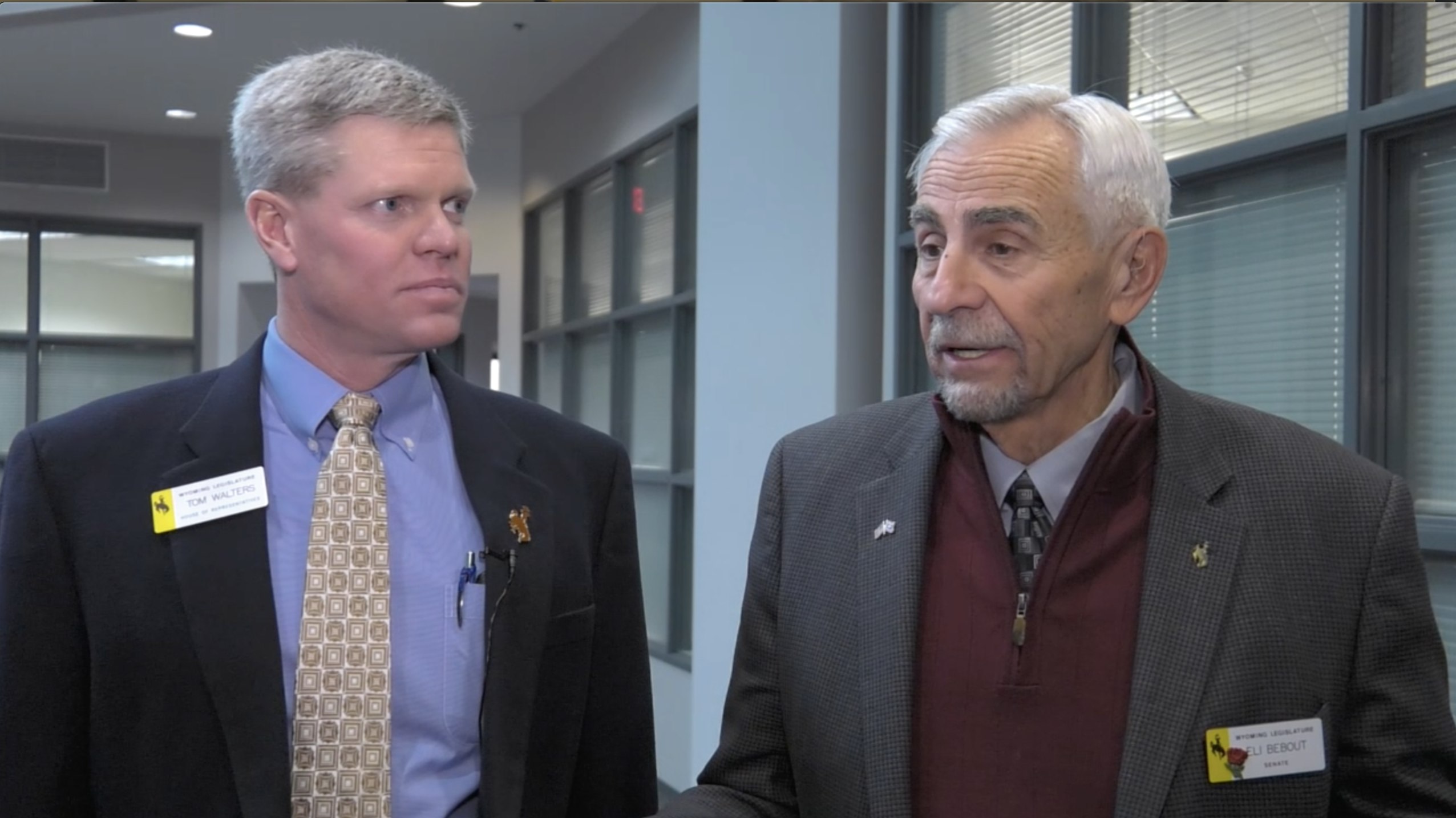Differences between the House and Senate over the proposed supplemental budget are just part of the legislative process and center largely on what constitutes necessary spending, two members of the Joint Appropriations Committee said Thursday.
Sen. Eli Bebout, R-Riverton, chairman of the Senate Appropriations Committee, and Rep. Tom Walters, R-Casper, agreed that the two bodies will bridge the $70 million gap between the House and Senate versions of the budget.
“Being the wonderful process that it is, we’ll get together and figure out our differences and in the next couple of weeks we’ll have a good supplemental budget that Wyoming can be proud of,” Walters said.
The Legislature approves a two-year budget during even-numbered years. The supplemental budget is a mechanism to provide funding for needs that may arise between the Legislature’s budget session. The supplemental budget submitted this year to the Legislature by the Joint Appropriations Committee outlines spending from the state’s main bank account or “General Fund” of $119 million.
The House and Senate finished their independent reviews of the budget this week. The House added $51 million in spending, while the Senate cut $19 million. The Senate is now reviewing the House changes to the budget while the House is reviewing the Senate version. A “conference committee” will later be appointed to reach a compromise between the two versions.
Bebout said many in the Senate consider the supplemental budget a way to pay for emergencies.
“So I felt we ought to deal with emergencies and as we worked through the budget, that’s where the House had differences from the Senate,” he said. “That’s the process. We talk about it, we debate, you take the vote…”
Part of the difference between the two bodies stems from education funding. The House increased the “external cost adjustment” for schools — an amount designed to help ease the impact of inflation on schools — by $21 million. The Senate cut the amount by $9 million.
Another difference is a software upgrade proposed for in Department of Revenue. The House added $15 million to JAC’s recommendation, while the Senate cut it by $5 million.
“Quite frankly, I didn’t think a lot of the things we brought up as we worked through the process … in the House vs. the Senate, that we had $52 million in additional spending that we needed,” Bebout said. “I’m not saying that we shouldn’t have some, but I felt that was more than I was willing to accept.”





